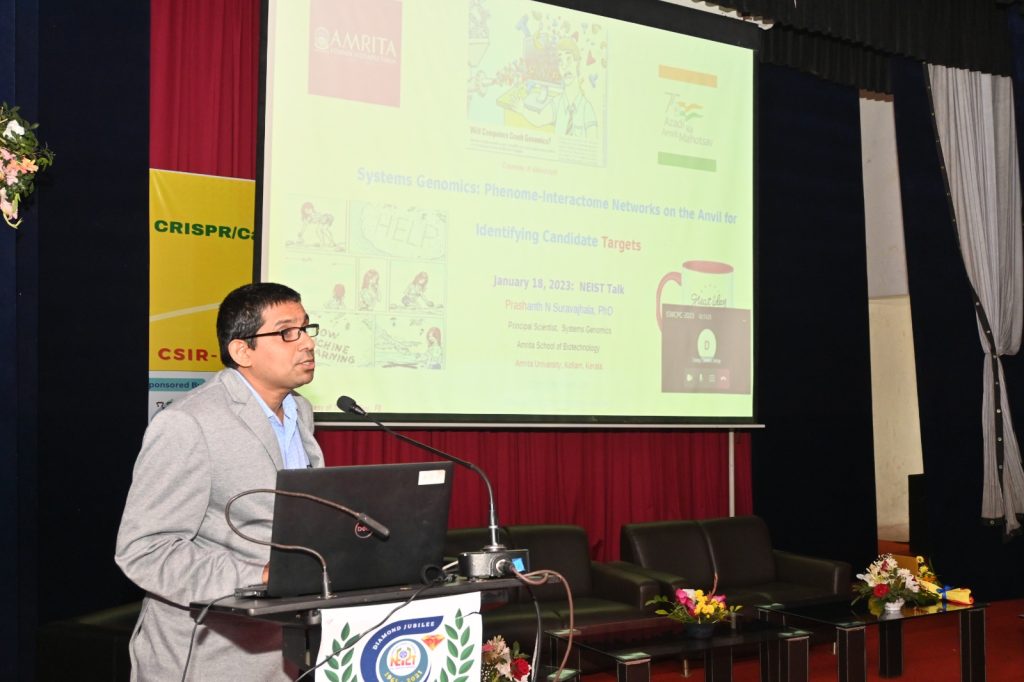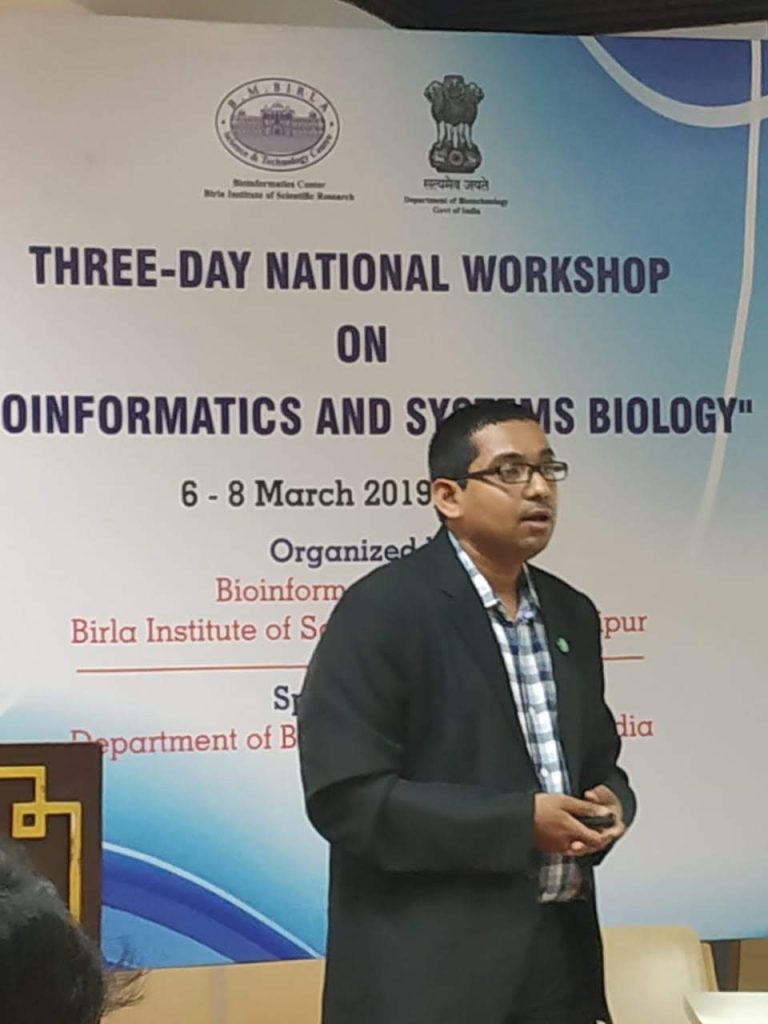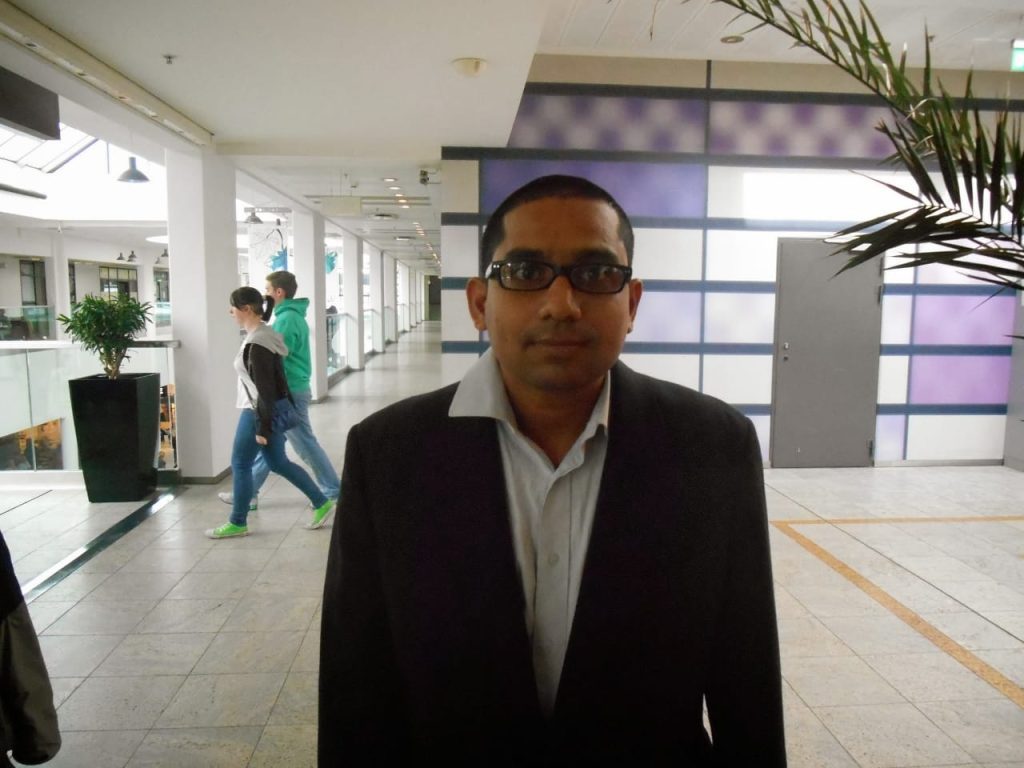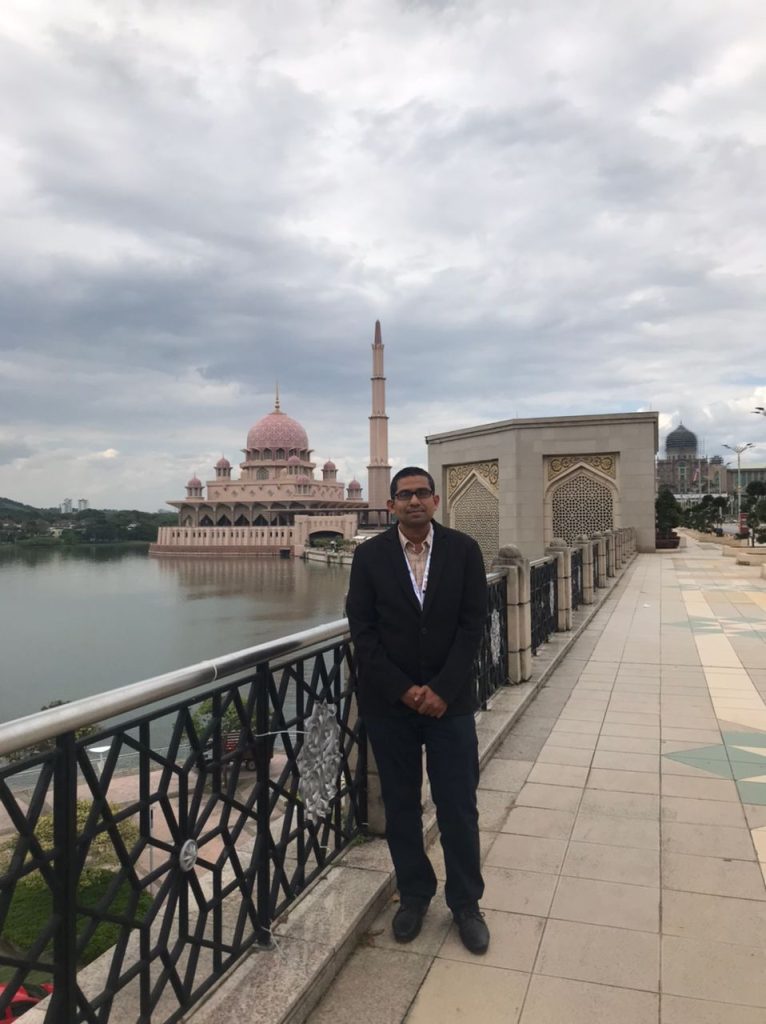(February 5, 2024) An avid bird watcher, Dr Prashanth N Suravajhala chose not to use his mobile phone to save birds from radiation. But that was until one fine morning in 2016 when his senior colleague at the Birla Institute of Scientific Research, Jaipur left him with no choice but to start using one, immediately.
As he hesitatingly bought an instrument and began using the phone, it eventually brought to life his dream project — house sparrow (passer domesticus) genome sequencing. “The numbers of this bird have been declining in many urban areas because of electromagnetic radiations and other anthropogenic activities in recent times,” points out Dr. Prashanth, Principal Investigator of the Systems Genomics laboratory at Amrita School of Biotechnology, Amrita Vishwa Vidyapeetham, Kerala, in an exclusive with Global Indian.

Dr Prashanth N Suravajhala
It was only recently that he completed the one-of-its-kind research on house sparrows sequencing. “We finished the sequencing and assembly of its genome. We found some genes responsible for circadian rhythms in it,” smiles Dr Prashanth, who has inherent interests in exploring the known-unknown regions in the animal and human genomes. He says Passer domesticus is one of the best models for studies influencing human technological advances on life and commensal life forms in human habitats.
A PhD in Systems Biology from Aalborg University, Denmark, Dr Prashanth went on to gain more than eight years of post-doctoral experience across four reputed laboratories. One of the post-doctoral stints was at Bioinformatics.Org in Boston where he was an Associate Director between 2008-14. Another one was at Dr Haruki Nakaumra’s Lab, at Osaka University, Protein Data Bank of Japan. “These experiences enabled me to come out of my comfort zone,” says the 45-year-old. While the soft-spoken scientist has done some phenomenal work in his field, mentoring youngsters has always been his top priority.
Bioclues
Dr Prashanth founded Bioclues.org virtually in 2005 with support from some of his friends and colleagues. “With several core members and mentors, it is now India’s largest bioinformatics society working for mentor-mentee relationships through Mentoring-Outreach-Research-Entrepreneurship (MORE) verticals,” informs Dr Prashanth.
One of the primary missions of Bioclues is to encourage women scientists to take up bioinformatics besides imparting a complete understanding of the principal bioinformatics algorithms and tools through interactive summaries, polls, and discussions. “Through Bioclues, we are providing an online project platform for mentoring graduate students, while bridging the interaction of students in the field of computational biology,” says Dr Prashanth, who was awarded the Prof. SS Guraya Gold Medal in February 2023.

Dr Prashanth N Suravajhala
Among other aspects, Bioclues caters to the need to assimilate existing open-source code and develop novel tools and web servers for the research community. “Essentially, we encourage all researchers to come outside their comfort zones and think. Collaborate, Converge, and Consensus are the three C’s we are aiming at.”
Remarkably, Dr. Prashanth has produced five PhD fellows, with nine more students working with him wherein four among them have submitted their theses. “Besides this, three postdocs trained with me while I share a wonderful scientific camaraderie with several grad and undergrad fellows,” smiles Dr Prashanth, who also founded CA Prostate Consortium of India (CAPCI) and Geneticist-Clinicians Consortium of India (GCCI).
Genomic assay technologies
“I was always fascinated by the emerging genomic assay technologies including characterising mechanisms of disease prevalence, genotype-driven therapies, checking patient’s risk of disease recurrence and gene expression signatures, to name a few,” informs the scientist, who was twice awarded the Amrita Innovation and Research Award (AIRA) for excellence in publications and Best Faculty Scientist Award by Amrita Vishwa Vidyapeetham.
On the other hand, he had an interest in understanding vivid post-diagnostic risk assessment tools and facilitating risk classification which would bring personalised medicine to the fore.
From Kothagudem
Dr Prashanth had a humble raising from Kothagudem, a coal city in the erstwhile state of Andhra Pradesh and now in Telangana. His parents Ananta Sastry and Nirmala Sastry were raised in Delhi and moved down south. “My parents, especially my mother, were my inspiration. I was drawn into biology right from school days, transformed it to its heyday where I set up my fascination with systems thinking and evolutionary biology,” says the scientist.

Dr Prashanth N Suravajhala
After trying his luck for a seat in Medicine with seven-month-long long-term coaching, in vain, he converted his failures to take up a Ph.D. in Science. While doing his B.Sc, he met his future partner Renuka. “Back then, I used to earn my pocket money through part-time teaching,” informs Dr Prashanth, who left for Denmark in 2004 for his PhD.
A brilliant mind
It was in 2016 when Dr Prashanth returned to India and set up his Systems Genomics group at Birla Institute of Scientific Research (BISR), Jaipur with an aim to carry out quality research. “I led three projects in the areas of systems genomics or rare diseases and next-generation sequencing analysis of cancers and diabetes,” he informs.
Over the last eight years, he developed an interest in long noncoding RNAs in humans, elucidating the mechanisms underpinning small molecular interactions through clinical exomes. His group has developed methods for systems genomic integration. Dr Prashanth has over 90 publications in peer-reviewed journals and edited three books as well. Between April 2022 to August 2023, he was also the Co-Principal Investigator for one-of-its-kind research on early detection, Surveillance, and prevention of Communicable Viral diseases in Jaipur city, which was a Wastewater-Based Epidemiological study.
As a Principal Investigator of the Systems Genomics laboratory at Amrita School of Biotechnology (Amrita Vishwa Vidyapeetham, Kerala), Dr Prashanth studies protein-protein interactions and top-down systems biology of hypothetical proteins, focusing on next-generation sequencing approaches to identify regulatory aspects of the genome. Apart from this, he had intermittently worked on identifying the candidate genes involved in the synthetic framework in bacteria and viruses, especially understanding what happens to host and pathogen interactions.

Dr Prashanth N Suravajhala
Dr Prashanth also got quite a few scholarships from reputed international institutions. In March 2008, he got a scholarship from ISMB/ISCB travel fellowship, in Taipei, Taiwan. In June 2008, he got another scholarship from Recomb Fellowship, Singapore. Similarly in July 2010, he got a scholarship from The International Society for Computational Biology-NY Cornell Fellowship for Cornell University Computational Biology.
The pandemic
The senior scientist says COVID has been a blessing in disguise. “During the COVID times, our group steadfastly collaborated with several peers and published some of the quality and engrossing papers with some of the top scientists in the country,” he says. Among the well-known scientists he collaborated with are Prof Gyaneshwar Chaubey of Banaras Hindu University, and Prof Keshav Singh, both experts in genetics.
Tom & Jerry
When not involved in his research work, Dr Prashanth loves to watch Tom and Jerry, Mr. Bean, and some Telugu comedy movies. He is a bookworm as well. “I buy a book during every trip and finish reading it by the time I travel. I did this across all 90+ countries I traveled,” smiles the scientist whose favourite book is “Transcendence: Conversation between APJ Abdul Kalam and Pramukh Swamiji” which he even gifted to at least 100 people.
- Follow Dr Prashanth N Suravajhala on LinkedIn





Dr. Prashanth’s accomplishments are commendable & his commitments to scientific research would serve as the source of inspiration to many.
Congratulations.God bless you.
amazing guy who always think of research and goodness to society in different ways. God Bless he one day achieves Nobel Prize!
Dr. Prash rekindled my passion for research when I was on the verge of leaving the field. His unwavering positivity and support have led me to secure a position with a reputable organization abroad.
Thank you, sir, for your guidance and belief in me.